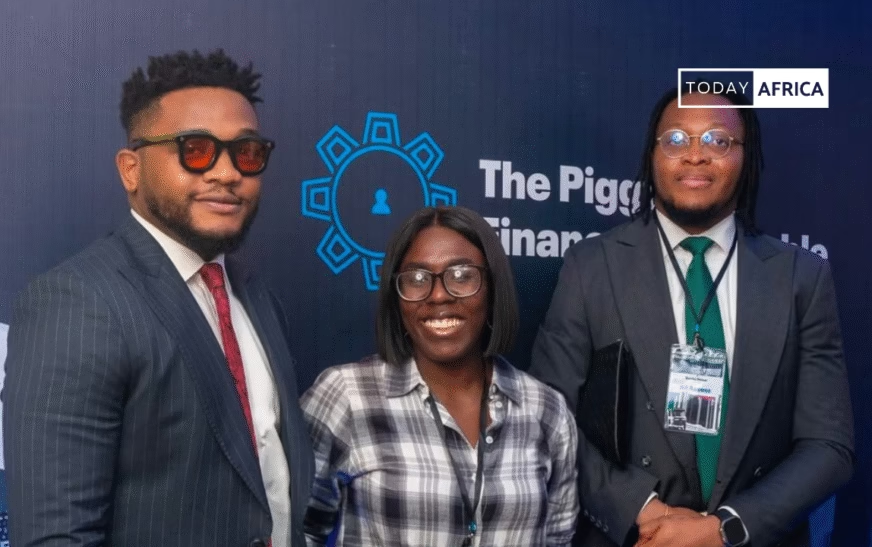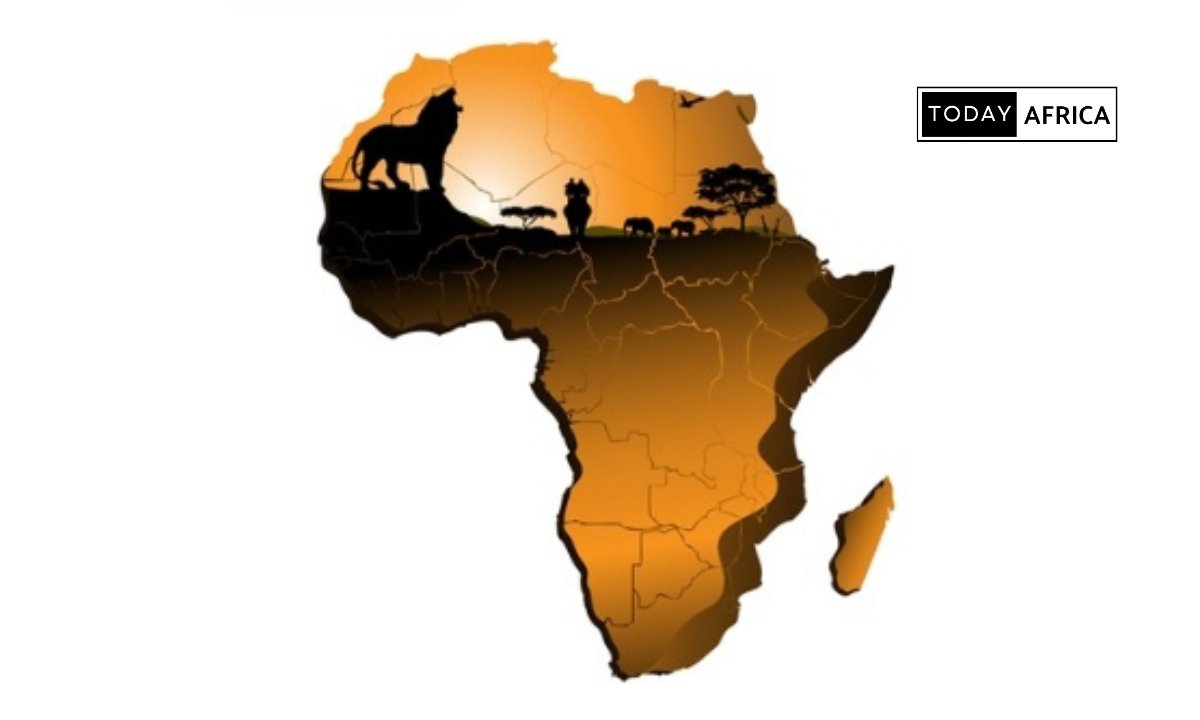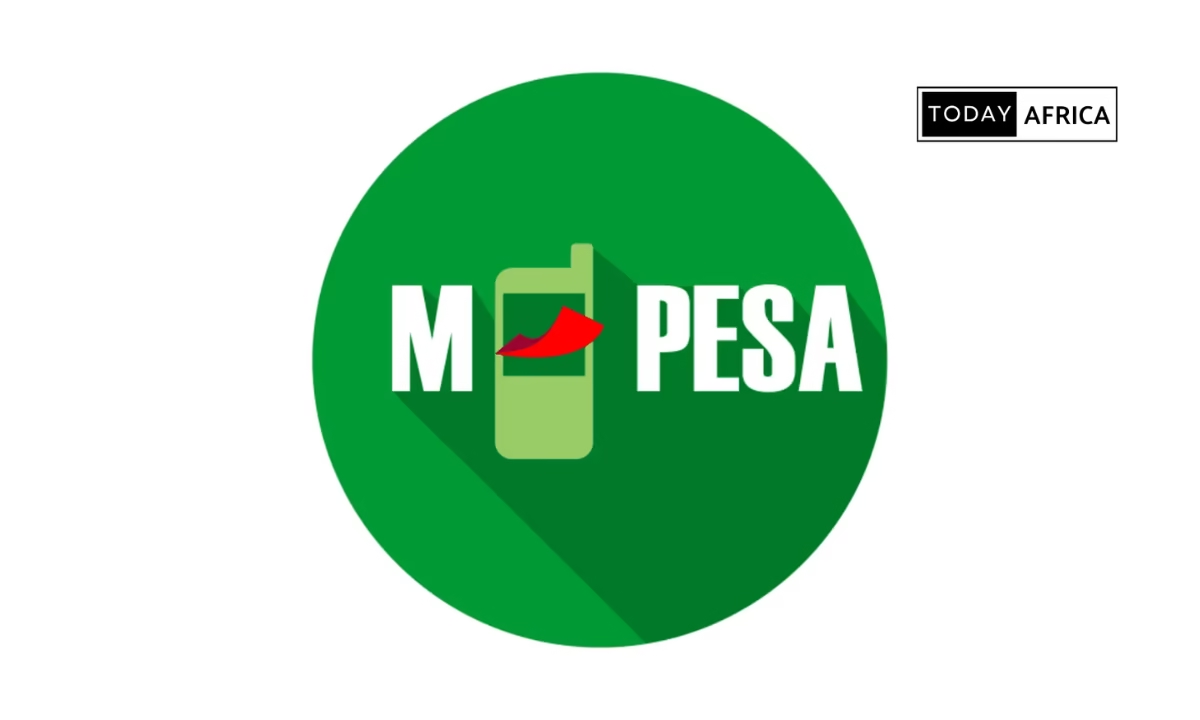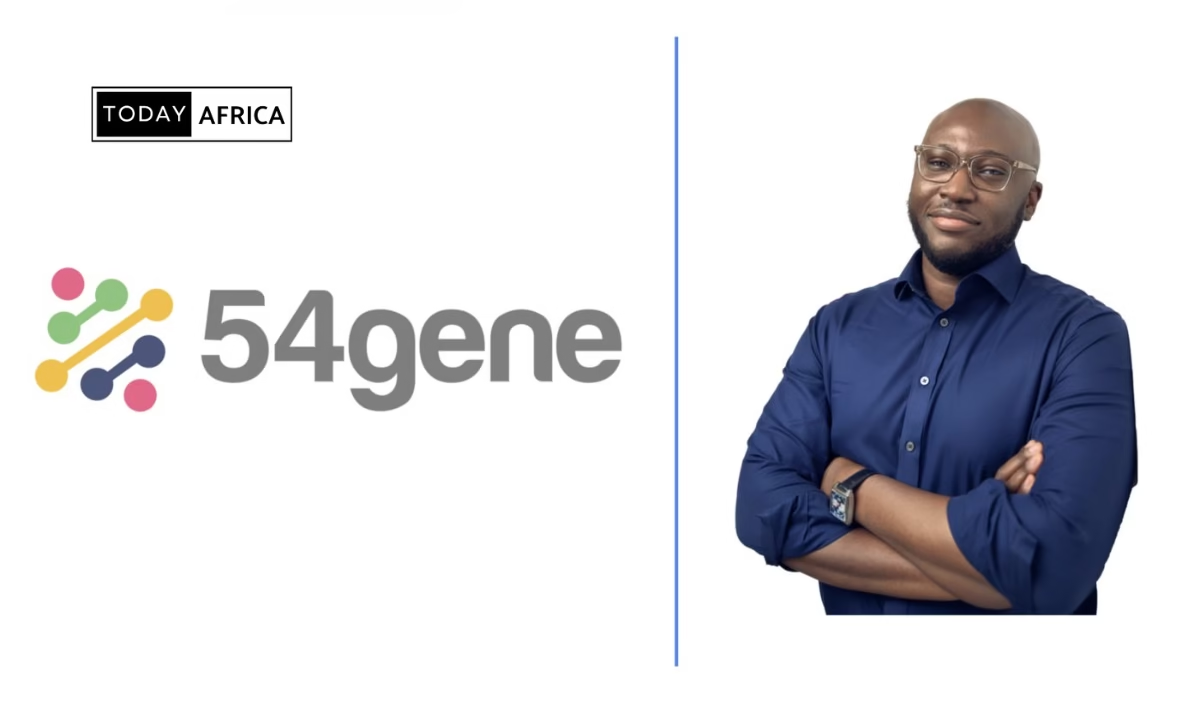There was a time when saving money in Nigeria felt like a test of willpower, or worse, a gamble.
Banks weren’t exactly built for young people trying to set aside a few thousand naira at a time. Hidden fees, clunky systems, and a general sense of mistrust made it easier to spend than to save.
But as smartphones became an extension of daily life, a quiet shift began. Technology started filling in the gaps left by traditional finance.
PiggyVest was born in that gap, out of frustration, yes, but also out of possibility. It took something ordinary, saving, and made it feel human again.
Easy. Automated. Even a little fun.
What began as a small digital experiment soon evolved into one of Nigeria’s most recognizable fintech stories, a brand that didn’t just help people save, but taught them how to think differently about money.
This is inside PiggyVest’s journey, analyzing its founding story, funding history, growth strategies, competition, societal impact, and challenges.
Disclaimer: The data in this episode of StoryLab is based on publicly available information as of October 2025 from reliable sources such as TechCabal, Nairametrics, TechCrunch, Techpoint, CIO Nigeria, Fintech News Africa, Fintech Magazine Africa, and PiggyVest’s website.
PiggyVest’s Founding Story
Founded in 2016 as Piggybank.ng, PiggyVest has grown into Nigeria’s largest savings and investment platform.
Inspired by a viral tweet about saving in a traditional “kolo” (a wooden piggy bank), co-founders Joshua Chibueze, Odunayo “Odun” Eweniyi, and Somtochukwu Ifezue (along with Ayo and Ibukun Akinola, Terry Kanu, and Nonso Eagle) set out to digitize Nigeria’s informal savings culture.
Their eureka moment came on New Year’s Day 2016: Joshua tweeted, “It’s only natural to think about an online solution for this piggybank idea, but then you have to really understand how Nigerians think.”
Odun suggested an e-wallet, and the team quickly sketched out Piggybank.ng. By January 7, 2016, the first prototype was ready.
They partnered with Paystack’s public beta and launched the full platform in April 2016. In its inaugural year Piggybank.ng helped about 700 users save ₦21 million ($82,000).
This modest start validated the concept: Nigerians were willing to “spend to save” – they gladly buy expensive kolos knowing they’ll pay a fee to break them early.
The founders realized this meant PiggyVest could charge small penalties to cover costs and remain profitable.
The early team leveraged this insight to build trust. In December 2016 they introduced free withdrawal days every quarter (for example on Dec 31), where users could withdraw their savings plus interest at no cost.
When the first free withdrawal day arrived, ecstatic early users took to Twitter, Instagram and Facebook to share how PiggyVest kept its promise.
This word-of-mouth explosion boosted users from 700 to about 2,000 within weeks.
As Odun Eweniyi later put it, “If you provide good, consistent, fair services to people, they’ll talk about you”. PiggyVest nurtured these “Avengers”, as the founders called their early adopters, through top-notch customer support and a referral rewards program that gamified onboarding.
Users who successfully helped friends join and save were given bonuses.
This community focus and transparency helped overcome the general distrust of online finance in Nigeria.
Throughout 2016–2018 the platform iterated rapidly. Piggybank.ng was formally launched to the public in April 2016, and by year’s end had shown proof-of-concept.
In 2017–18, the founders self-funded the startup out of previous venture gains and early sales, tightening the app and learning from user feedback.
Their big breakthrough came in May 2018, when LeadPath Capital led a $1.1 million seed round (with Village Capital and Ventures Platform contributing).
The team immediately used this capital to acquire a microfinance banking license (via their affiliate, Golden Microfinance Bank).
This license legitimized PiggyVest’s operations and built further trust. Later in 2018, they joined Google for Startups Accelerator to refine their model.
By April 2019, with early traction and funding in place, Piggybank.ng rebranded as PiggyVest.
The new name reflected their expanded mission: beyond simple piggybank savings, they now offered automated savings plus investment tools.
As co-founder Somto Ifezue explained, the name change meant “a better way to save and invest in one brand”.
PiggyVest had already achieved over 195,000 users saving an aggregate ₦1 billion monthly.
The rebranding coincided with the launch of new features like –
- Target Savings (goal-based plans)
- Safelock (fixed-term deposits)
- Investify (curated investments)
- Flex Naira/Dollar accounts
Each step built on the original idea of “digitizing the kolo” while adding sophistication.
Milestones
| Year | Milestone / Event | Description / Significance | Impact / Outcome |
|---|---|---|---|
| 2016 | Launch of Piggybank.ng | Introduced as a digital savings platform to help Nigerians automate their savings and build discipline. | Sparked early conversations about financial discipline and digital trust among young Nigerians. |
| 2017 | Early traction and first 10,000 users | Gained early adopters through social media engagement and referral programs. | Showed proof of user trust in online saving — a cultural shift in a skeptical market. |
| 2018 | $1 million saved milestone | Reached a major credibility point showing real user savings volume. | Cemented PiggyVest as a viable alternative to traditional banks for personal savings. |
| 2018 | Partnership with ARM | Partnered with ARM to manage and secure users’ investments. | Strengthened regulatory compliance and reassured users about fund safety. |
| 2019 | Rebranded to PiggyVest | Transitioned from Piggybank.ng to PiggyVest, reflecting a shift from pure saving to a broader wealth-building platform. | Expanded its vision from “saving money” to “growing wealth.” |
| 2019 | Introduction of Flex and Safelock features | Launched new tools for flexible and fixed-term savings. | Increased user engagement by giving people more control and motivation to save. |
| 2020 | Crossed 1 million users | Surpassed a major user milestone amid a growing fintech boom. | Established PiggyVest as one of the most trusted fintechs in Nigeria’s consumer finance space. |
| 2021 | Acquisition of Savi.ng | Acquired a competing savings startup. | Strengthened market share, merged user bases, and improved product diversity. |
| 2021 | SEC registration for investment operations | Secured official regulatory licensing to offer investment products. | Became one of the first fully compliant fintechs in Nigeria’s investment segment. |
| 2022 | Over 4 million users | Continued organic growth through community-driven campaigns and savings challenges. | Proved staying power in a crowded fintech market. |
| 2023 | Crossed 5 million users and $1 billion+ saved | Marked both scale and impact, showing massive user trust. | Positioned PiggyVest as a market leader shaping financial habits nationwide. |
| 2024–2025 | Expanding financial ecosystem | Rolled out new investment tools, financial literacy programs, and deeper institutional collaborations. | Transitioning from savings platform to full-fledged financial lifestyle ecosystem. |
Read Also: Inside Flutterwave’s Journey: From Bright Idea to an African Unicorn
Funding History and Strategic Investments
PiggyVest began very lean, relying on the founders’ savings and small accelerators. In 2016, co-founder Somto Ifezue used ₦12,000 from PushCV (a local VC) to build the first MVP.
Between 2016 – 2018, they ran on operating revenue and little angel investment.
The first major external capital came in May 2018: a $1.1 million seed round led by LeadPath Capital, with Village Capital and Ventures Platform joining.
This round was explicitly used to secure regulatory licensing and scale the product. With the microfinance license in hand, PiggyVest was poised for expansion.
No large venture rounds followed immediately; much of PiggyVest’s expansion was organic or through partnerships.
By 2021, the company had raised roughly $4.2M in total (according to Crunchbase). (Public records show no multi-million Series A or B after 2018, indicating cautious growth.)

PiggyVest did form some strategic partnerships to strengthen compliance: notably, it engaged leading Nigerian asset managers (like ARM and AIICO Capital) to warehouse users’ funds in SEC-regulated instruments.
In 2020, they established PV Capital Ltd. to manage funds; PV Capital is a duly registered SEC fund manager.
This move – licensing PiggyVest’s funds with the SEC – made PiggyVest one of the first Nigerian fintech platforms fully licensed for investment operations.
Meanwhile, PiggyVest expanded its scope through acquisitions and products rather than fundraising.
In July 2021, PiggyVest acquired Savi.ng, a micro-investment app founded in 2018. Savi.ng’s features (automated savings, fixed deposits, group savings) were integrated into PiggyVest’s offerings.
By 2021, PiggyVest reported that “over 3,000,000+ people have used PiggyVest” and that the app had been installed over one million times.
That same year, Somto Ifezue noted that PiggyVest had cumulatively paid back ₦90 billion to users, a testament to the capital it was handling, all without a large new funding round.
Regulatory milestones also signaled PiggyVest’s maturity. Early on they relied on partner microfinance banks, but by 2018 they were operating under their own Golden Microfinance license.
On the investment side, by the early 2020s their affiliate PV Capital secured full SEC fund-management registration.
These steps – banking license and SEC license – gave PiggyVest legal standing to scale as a regulated financial institution.
Taken together, PiggyVest’s funding journey was relatively modest (a small seed round and some strategic backing) but highly purpose-driven: each raise or partnership was aimed at compliance and product development, not splashy expansion.
Table: PiggyVest’s funding rounds & strategic investments
| Year | Type | Investor(s) / Partner(s) | Amount (USD) | Purpose / Description |
|---|---|---|---|---|
| 2016 | Bootstrapping | — | — | Initial self-funded stage used to develop the MVP (Piggybank.ng) and test early adoption among Nigerian users. |
| 2018 | Seed Round | LeadPath Nigeria, Village Capital, Ventures Platform | $1.1 million | To strengthen infrastructure, improve mobile and web platforms, and scale user acquisition in a growing but skeptical fintech market. |
| 2019 | Strategic Partnership | ARM (Asset & Resource Management Company) | Partnership-based (non-equity) | Enabled regulated investment offerings and the launch of “Investify,” giving users access to low-risk investment products. |
| 2019 | Rebranding | — | — | Piggybank.ng rebranded to PiggyVest, expanding from pure savings to a broader wealth management and investment platform. |
| 2020 | Strategic Growth Partnership | AIICO Capital | — | Partnered to diversify user investment options and integrate secure, licensed investment products. |
| 2021 | Acquisition | Savi.ng | Undisclosed (estimated mid-six figures) | Acquired smaller competitor Savi.ng to consolidate market share, migrate users, and expand its engineering team. |
| 2022 | Regulatory Milestone | Nigerian Securities and Exchange Commission (SEC) | — | PiggyVest became one of Nigeria’s first digital investment platforms fully licensed by the SEC, ensuring compliance and investor protection. |
| 2023 | Revenue-Funded Expansion | Internal reinvestment | — | Product diversification, infrastructure scaling, and expansion into long-term financial planning and micro-investment tools. |
See Also – Inside M-KOPA’s Journey: Unlocking Energy and Financial Access in Africa
Strategies Fueling Growth
PiggyVest’s success stems from a combination of user-centric design, behavioral psychology, and community trust. Its core strategies included:
1. Trust-building and transparency
From the start PiggyVest emphasized keeping promises. It paid out interest on time, honored no-fee withdrawal days, and communicated clearly on social media.
For example, on every “free withdrawal day” PiggyVest delivered exactly what was promised – and users immediately publicized their payouts online.
As co-founder Odun Eweniyi notes, consistently providing “good, consistent, fair services” turned users into ambassadors.
The company also openly explained fees (e.g. small penalty for early withdrawal) and even published a PiggyVest Savings Report to share insights on Nigerian saving habits, which in turn built credibility.
By the end of 2025, PiggyVest is estimated to have over 5 million users precisely because “they carry the platform in their heads”, a “sprawling community” motivated by positive experiences.
2. Gamified savings mechanics
PiggyVest applied behavioral design to make saving engaging. All plans have clear goals and rewards.
Safelock (their fixed savings) lets users lock funds for 10–365 days at up to 22% annual interest, earning the interest upfront.
This is marketed like an accessible treasury bill: one user says Safelock feels “like an interesting twist on T-bills” that anyone can use for as little as ₦1,000.
Target Savings invites users to save toward goals (weddings, rent, gadgets) and lets friends contribute for fun. Automatic debit (Autosave) options remove friction by withdrawing small amounts daily/weekly.
PiggyVest also uses Accountability Partners, trusted friends or family who get notifications if the user breaks their savings streak.
Together, these features tap psychology: locking funds curbs impulse spending, while social goal-setting and visible progress keep users engaged.
3. Product simplicity and mobile UX
The app is mobile-first and streamlined. Copywriting is friendly and relatable (e.g. calling locked savings a “HoneyPot”).
The onboarding process is smooth: users link a bank card or account, set a savings plan in 3 taps, and they’re set. PiggyVest made deliberate UX choices to resonate with young Nigerians.
For instance, its homepage tagline, “Save little and often. Today, not tomorrow” speaks directly to youth aspirations.
The team even embraced pop-culture tropes in marketing, memes about #SaversSpecial days and slang-filled newsletters, making PiggyVest feel like part of the Nsukka Twitter or Aba WhatsApp conversation.
This cultural resonance, combined with intuitive design, kept users coming back. As TechCabal observes, “PiggyVest has grown popular among young Nigerians for its flexibility and attractive interest rates”.
4. Strategic partnerships
To guarantee security and legitimacy, PiggyVest partnered with established financial firms. Funds deposited by users are “warehoused” with asset managers and the Nigerian sovereign (via Treasury bills).
Early on, PiggyVest worked with Union and Zenith microfinance banks to hold deposits; later, it formed an in-house bank (Golden MFB).
It also collaborated with regulators: PV Capital Ltd (PiggyVest’s investment arm) became SEC-registered, so users’ invested money went into SEC-regulated mutual funds.
In short, PiggyVest trusted familiar institutions for oversight. These moves, marketing itself as compliance-first, won over skeptical users who feared Ponzi schemes.
5. Marketing & community
PiggyVest built a grassroots brand on social media. Its marketing team, often just the founders and a few interns, ran creative campaigns like weekly savings challenges, referral contests, and “Saving 10x Wednesday” promos.
Notably, PiggyVest leveraged customer success stories, avatars of the “NYSC corps member who bought a laptop with Safelock” or the “student who saved ₦1m for a cake business”, on Instagram and Twitter.
Co-founder Odun Eweniyi appeared on podcasts and in interviews to preach the PiggyVest ethos.
Influencers (and even Nollywood actors) began joking about PiggyVest in memes, cementing its place in pop culture.
This mix of “growth by word-of-mouth and social media” plus offline hustle (campus events, startup fairs) created an almost self-propelled user community.

6. Cultural relevance
Perhaps most importantly, PiggyVest tapped into Nigerian youth identity. Its tone was cheerful and empowering (“You go thank us later”), acknowledging that many young people found banks stuffy or predatory.
By illustrating saving as cool and communal, PiggyVest made “financial planning” part of everyday life.
When it launched Flex Dollar savings during a currency crisis, social posts highlighted how naive USD-savers were feeling resilient.
All this cultural grounding, being woven into everyday conversations, kept PiggyVest at the center of Nigeria’s savings discourse.
In PiggyVest’s suite of products, a flexible savings account Flex Naira, offers instant deposits/withdrawals with 12% interest, giving users liquidity without losing yield.
These user-friendly plans (automated Piggybank, Target goals, Safelock, Flex) are customized for Nigerians’ habits.
By making saving feel both rewarding (high interest, visual milestones) and fun (challenges, accountability), PiggyVest turned discipline into a game for millions of young people.
Read Also – Inside LifeBank’s Journey: Building the “Amazon for Blood” in Africa
Competition in Nigeria’s Fintech Ecosystem
PiggyVest operates in a crowded market of digital banks and savings apps. Competitors include Cowrywise (est. 2017), Risevest (2018), Chaka, Bamboo, and neobanks like Kuda and ALAT.
Each has its niche: Cowrywise offers SEC-regulated mutual funds and goal-based savings, Bamboo allows Nigerians to buy U.S. stocks, Risevest targets the diaspora with dollar bonds, and Kuda markets itself as a full-service mobile bank.
Despite the overlap, PiggyVest’s model remains distinctive. It was first to market with pure savings plans, and it doubled down on community trust rather than chasing hype.
As Somto Ifezue quipped, “Competition is my customer, I have the attention of over six million users on the Piggytech ecosystem”.
In practice, PiggyVest focused on retention: rather than luring high-risk, revenue-hungry users, it prioritized stable returns and compliance.
While some rivals have flirted with aggressive user growth or crypto, PiggyVest stayed conservative.
This paid off amid sector shakeouts; even when fintech news was dominated by flashy funding stories (e.g. Kuda’s $60M rounds), PiggyVest quietly extended features.
Unlike a neo-bank just chasing sign-ups, PiggyVest’s strength has been stickiness; users rarely abandon their long-term savings plans. Its SEC partnerships (e.g. with ARM) and CBN licensing gave it institutional backing that rival apps lack.
In essence, PiggyVest acted as a stabilizer: in an ecosystem where quick-yield startup models sometimes failed trust tests, PiggyVest’s “we told you what we’d do, and we did it” reputation became a moat.
As one Nigerian analyst noted, when other fintechs seek rapid expansion, PiggyVest continues to build “compliance-first” systems and deep customer loyalty – a different, more sustainable playbook.
TL;DR
| Platform | Primary Focus | Core Offerings | Differentiating Edge | Market Position / Audience |
|---|---|---|---|---|
| PiggyVest | Digital savings & investments | Automated savings, goal-based targets, Safelock, Investify, Flex | Pioneer in trust-based savings; gamified experience; strong community and relatable branding | Market leader in digital savings; dominant among young Nigerians seeking discipline and safety |
| Cowrywise | Digital savings & investments | Automated savings, mutual funds, goal-based investing | Strong investment and fund management partnerships (SEC-licensed) | Competes closely with PiggyVest for disciplined, investment-minded users |
| Kuda Bank | Neobank / full digital banking | Free transfers, debit cards, budgeting tools | Operates as a full digital bank, beyond savings | Broader lifestyle audience overlapping with PiggyVest’s user base |
| Risevest | Global investment access | Dollar portfolios (stocks, real estate, fixed income) | Dollar-based global investment options | Appeals to users looking to hedge against naira depreciation |
| Bamboo | Stock investments | Stock trading, ETFs | Direct access to U.S. stock markets | Niche audience of investment-savvy users |
| Carbon (Paylater) | Digital lending & payments | Loans, bill payments, savings | Loan-first platform expanding into fintech | Indirect competitor; targets users seeking credit and utility services |
| Chipper Cash | Cross-border payments | Transfers, crypto features, cards | Multi-country presence and remittances | Pan-African base; not directly savings-focused |
| FairMoney | Credit and digital banking | Loans, bill payments, mobile banking | Lending-first app expanding into deposits | Competes on convenience rather than savings discipline |
| Opay | Super app / payments | Wallet, bill payments, food, transport, savings | All-in-one super app with lifestyle integrations | Mass-market reach; convenience-driven, less trust-led |
| Vbank (by VFD) | Digital banking | Savings, loans, investments | Traditional bank backing ensures regulation and trust | Competes through credibility and established infrastructure |
See Also – Inside Zipline’s Journey: Redefining Medical Drone Delivery Across Africa
Impact on Society
PiggyVest has profoundly reshaped Nigerian saving habits. It turned sporadic, cash-hoarding behavior into regular, goal-driven discipline. By mid-2022, it had empowered over 5 million Nigerians to save and invest efficiently.
The total funds moved through PiggyVest now exceed ₦2 trillion ($1.25B), meaning everyday Nigerians are parking serious capital in the platform.
This scale makes it a significant channel for domestic savings – funds that might otherwise sit idle under beds or in low-yield accounts.
Remarkably, PiggyVest helped democratize investing. As Odun Eweniyi explains, before PiggyVest and similar apps, “Nigerians would need about $2,000 to take advantage of basic investment opportunities. But technology has largely democratised this by allowing people to invest with as little as 20 cents”.
In practical terms, a university graduate with ₦1,000 can now earn higher returns than in a commercial savings account, and build assets (buying a laptop, sewing machine or land) in months.
User stories bear this out: one PiggyVest saver (“Barnabas, Photographer”) reports using N5,000 to buy a new camera and laptop over a few years. Another saved over ₦1 million via disciplined weekly plans to launch her bakery business.
These testimonials on PiggyVest’s blog reflect a wider trend: intentional planning has spread among Nigeria’s youth.
On macroeconomics, PiggyVest channels individual savings into productive instruments. Its partnerships ensure that pooled funds go into government bonds and mutual funds.
Thus ordinary Nigerians indirectly finance infrastructure and business, rather than holding cash.
While precise impact is hard to quantify, some reports credit PiggyVest (and its peers) with nudging Nigeria’s national savings rate above the continental average.
Importantly, PiggyVest stresses financial literacy. The company produces educational content, blog posts, podcasts, and an annual “PiggyVest Report”, explaining budgeting and investment.
Its Savings Report (for example) attracted media and academic attention, “leading the conversation around savings” in Nigeria.
Policymakers and NGOs have even referenced its data in seminars. In sum, PiggyVest plays a visible role in teaching Nigerians to save and invest wisely.
As a cultural phenomenon, PiggyVest put Nigeria on the map as a fintech innovator.
It regularly features in lists of Africa’s top startups, and its global recognition (CNBC’s 2024 Fintech 250) signals that Nigeria can build world-class financial tech.
Many new Nigerian fintechs cite PiggyVest’s model as inspiration: build on local context, prioritize trust, and start simply.
By turning saving into a daily habit for millions, PiggyVest has arguably improved financial inclusion: even non-rich young people now have easy access to investment rates once reserved for the wealthy.

Challenges PiggyVest Faced
1. Regulatory uncertainty
Early on, PiggyVest had to work around unclear rules: they navigated Central Bank limits by partnering with licensed microfinance banks and later acquiring their own.
In 2021, a sudden CBN crackdown on virtual account numbers (used by fintechs for bank transfers) caught many startups flat-footed. PiggyVest narrowly avoided disruption by having contingency plans.
Co-founder Odun recalls: in 2020, “we had already made internal plans to build in redundancy and have multiple virtual account number systems… Making that switch in that period was very easy because it was a conversation that we already had”.
While many fintech users panicked online, PiggyVest swiftly communicated changes and reassured customers, helping it emerge “unaffected” by the clampdown.
2. Fraud and cybersecurity risk
Any online savings app can be a target for scammers. PiggyVest took precautions: for instance, it eliminated funding Flex accounts by debit card (to prevent instant-cash fraud) and required users to use bank transfers or Naira bank accounts.
It also invested in tech: PiggyVest has built in layers of encryption, two-factor authentication, and reverse-insurance (through NDIC on its microfinance bank).
While specific incidents are rarely publicized, the brand’s “bank-grade security” claims and spotless track record helped it avoid the reputation blow of fraud that hit some crypto and loan apps.
3. Competition pressure
As new digital banks and crypto exchanges launched, management had to keep innovating.
Yet they chose not to sacrifice safety. Even when bigger players like OPay or Moniepoint expanded with huge VC war-chests, PiggyVest continued its measured approach.
In an interview, Somto said he wasn’t worried about rivals because PiggyVest’s “concern is how I can help the people we already have do more with their finances”.
This humility underlies PiggyVest’s strategy of incremental improvement rather than flashy pivots.
4. Scalability
Handling millions of transactions securely demanded robust infrastructure. For example, PiggyVest found early payment partners (Paystack, Flutterwave) sometimes suffered downtime at high volume.
To resolve this, in 2023, PiggyVest in-sourced its payments by building PocketApp and issuing its own virtual accounts. This gave PiggyVest control over money flow, drastically reducing delays and errors.
However, it required heavy engineering investment. The decision exemplified PiggyVest’s long-term view: short-term, it meant more cost; long-term, it safeguarded trust.
5. Economic realities.
Nigeria’s inflation hit a 40-year high (33%) by late 2024, and the naira’s slide meant that Naira savings lost value over time. Some users withdrew funds to dodge inflation.
PiggyVest responded by introducing its Flex Dollar (a USD-hybrid account) and encouraging portfolio diversification.
Despite the tough climate, PiggyVest remained alive; in fact, 2024 was reportedly its most profitable year as Nigerians doubled down on saving amid uncertainty.
But the challenge persists: macroeconomic instability will continue to pressure the savings proposition in Nigeria.
See Also – Inside Andela’s Journey: How Six People Reimagined Africa’s Tech Future
Lessons from PiggyVest’s Journey
PiggyVest’s story offers several broader lessons for African fintech:
1. Trust is currency
PiggyVest shows that in markets wary of scams, building trust is as important as innovation.
By always delivering on promises (paid-out savings on schedule, clear communication, and user stories), PiggyVest created a brand people relied on.
The lesson: fintech startups should over-communicate and under-promise, keeping users informed at every step.
PiggyVest’s use of social proof (free withdrawal events, shared testimonials) turned users into advocates. In West African fintech, where regulation lags, this trust-driven growth can outlast hype-based strategies.
2. Simplicity and timing
PiggyVest succeeded by starting simple and expanding features gradually. It launched in 2016 when smartphone adoption was rising, seizing the moment.
It concentrated on a core problem, helping people save easily, rather than chasing every new vertical.
This focus meant the app remained user-friendly even as it added complex products.
Future fintech founders should note that launching at the right cultural moment, with a simple MVP that resonates with local habits, can create a powerful network effect.
3. Community and storytelling
Money is personal, especially savings. PiggyVest’s teams did not just write code; they told stories, through relatable brand language, newsletters, and an active presence on Nigerian social media.
This fostered a sense of belonging (“PiggyFam” is how users often refer to each other).
By empowering users to share their goals publicly, PiggyVest turned individual savings goals into a shared national narrative.
Fintechs aiming to go viral should remember: build around people’s ambitions and give them ways to talk about you.
4. Compliance-first scaling
Despite the pressure to grow fast, PiggyVest prioritized regulatory compliance and prudent scaling.
It built systems (microfinance bank, SEC-licensed fund manager) long before it had millions of users, so that when growth came the infrastructure and legal permissions were ready.
That discipline meant PiggyVest weathered bank restrictions and proved attractive to serious investors.
The broader lesson: in emerging markets, “move fast, break things” can backfire; moving cautiously can pay off by preventing shutdowns.
5. Local context matters
PiggyVest adapted to Nigeria’s specific context, for example, introducing ₦50 daily savings amounts for low-income users, or piggybacking on Paystack (a Nigerian fintech) instead of global providers.
It eschewed imported fintech templates. This local tailoring, from language to partnerships, made the product feel homegrown.
Other African startups should likewise ground their designs in local financial behaviors and pain points, rather than blindly copying Silicon Valley models.
Looking ahead, PiggyVest faces the test of a maturing market. New fintech entrants (some backed by global VCs) will try to lure its users with novel pitches.
Yet PiggyVest’s advantage remains its deep relationship with Nigerian savers.
If it continues to innovate, for instance, by adding budgeting tools and helping salaries stretch to month’s end, it can maintain leadership.
The company has even hinted at preparing for an IPO, reflecting confidence in sustained growth.
In conclusion, PiggyVest’s journey from a tweet-inspired startup to a fintech powerhouse exemplifies how financial innovation can spark social change.
By earning trust, gamifying saving, and living the culture of its users, PiggyVest taught millions of Nigerians that saving is doable and even rewarding.
Its story is a case study in combining human storytelling with disciplined execution, a balance that other African fintech ventures would do well to emulate.
As one of Nigeria’s earliest digital saving platforms, PiggyVest has not only changed consumer behavior, but also altered the national conversation about finance.
It stands as proof that, with the right mix of technology, empathy, and persistence, fintech can indeed transform an economy from the grassroots up.
Sources: TechCabal, Nairametrics, TechCrunch, Techpoint, CIO Nigeria, Fintech News Africa, Fintech Magazine Africa, and PiggyVest’s website.
Leave a comment and follow us on social media for more tips:
- Facebook: Today Africa
- Instagram: Today Africa
- Twitter: Today Africa
- LinkedIn: Today Africa
- YouTube: Today Africa Studio
















